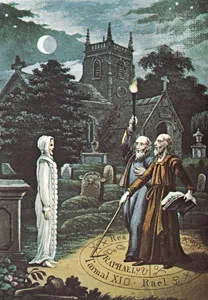Throughout the annals of history, the belief in ghosts has been a persistent and pervasive phenomenon across cultures and epochs. These ethereal entities, often considered the spirits of the deceased, have captivated human imagination, inspired folklore, and influenced religious and spiritual practices. The concept of ghosts is not merely a product of superstition or fear; it is a reflection of humanity’s enduring fascination with the afterlife and the unknown. This article delves into the historical perspective of ghosts, exploring their significance in various cultures and how they have shaped human history.
Ancient Civilizations and the Supernatural
In ancient civilizations, the belief in ghosts was deeply intertwined with religious and spiritual beliefs. The Egyptians, for instance, had an elaborate concept of the afterlife, believing that the soul, or ka, could return to the world of the living if not properly mummified and provided with offerings. This belief led to the development of intricate burial practices and the construction of monumental tombs and pyramids.
Similarly, the ancient Greeks and Romans had their own notions of ghosts. The Greeks believed in shades, or psychai, which were the spirits of the dead that resided in the underworld. However, under certain circumstances, these spirits could return to the world of the living, as depicted in Homer’s Odyssey, where Odysseus encounters the ghost of his mother in the underworld.
The Role of Ghosts in Medieval Europe
During the Middle Ages, Europe was steeped in a rich tapestry of ghost stories and legends. The Christian Church played a significant role in shaping the perception of ghosts, often associating them with purgatory or as souls in need of prayer to move on to the afterlife. The concept of hauntings was also prevalent, with many believing that ghosts could return to seek vengeance or to warn the living of impending doom.
One of the most famous medieval ghost stories is that of the Wandering Jew, a legend that emerged in the 13th century. It tells of a Jew who mocked Jesus on the way to the crucifixion and was cursed to walk the earth until the Second Coming. This tale reflects the anti-Semitic sentiments of the time and illustrates how ghost stories could be used to convey moral lessons or to reinforce societal norms.
Ghosts in the Age of Enlightenment
The Age of Enlightenment, a period characterized by a focus on reason and scientific inquiry, saw a shift in the perception of ghosts. While some dismissed ghosts as superstitions, others sought to investigate them through a more empirical lens. The rise of spiritualism in the 19th century, particularly in the United States and Europe, brought a renewed interest in communicating with the dead through séances and mediums.
This movement was fueled by the Fox sisters in 1848, who claimed to have made contact with the spirit of a murdered man in their family home. The spiritualist movement gained popularity, with many people seeking solace in the belief that they could communicate with deceased loved ones. Despite skepticism and exposure of fraudulent mediums, the fascination with ghosts and the afterlife continued to grow.
Modern Perspectives on Ghosts
In the modern era, the belief in ghosts remains a significant aspect of popular culture, with countless books, movies, and television shows dedicated to the supernatural. Paranormal investigation has become a popular hobby, with enthusiasts using technology to search for evidence of ghostly activity.
While science has yet to provide concrete evidence of ghosts, the belief in them persists. Psychologists and anthropologists suggest that the belief in ghosts fulfills a psychological need, offering explanations for the unexplainable and providing a sense of connection with the deceased.
Conclusion
The history of ghosts is a testament to humanity’s enduring fascination with the afterlife and the unknown. From ancient civilizations to the modern age, ghosts have played a significant role in shaping cultures, influencing beliefs, and inspiring stories. Whether considered as spirits of the dead, manifestations of the human psyche, or simply a product of our collective imagination, ghosts continue to haunt our history and our present.
